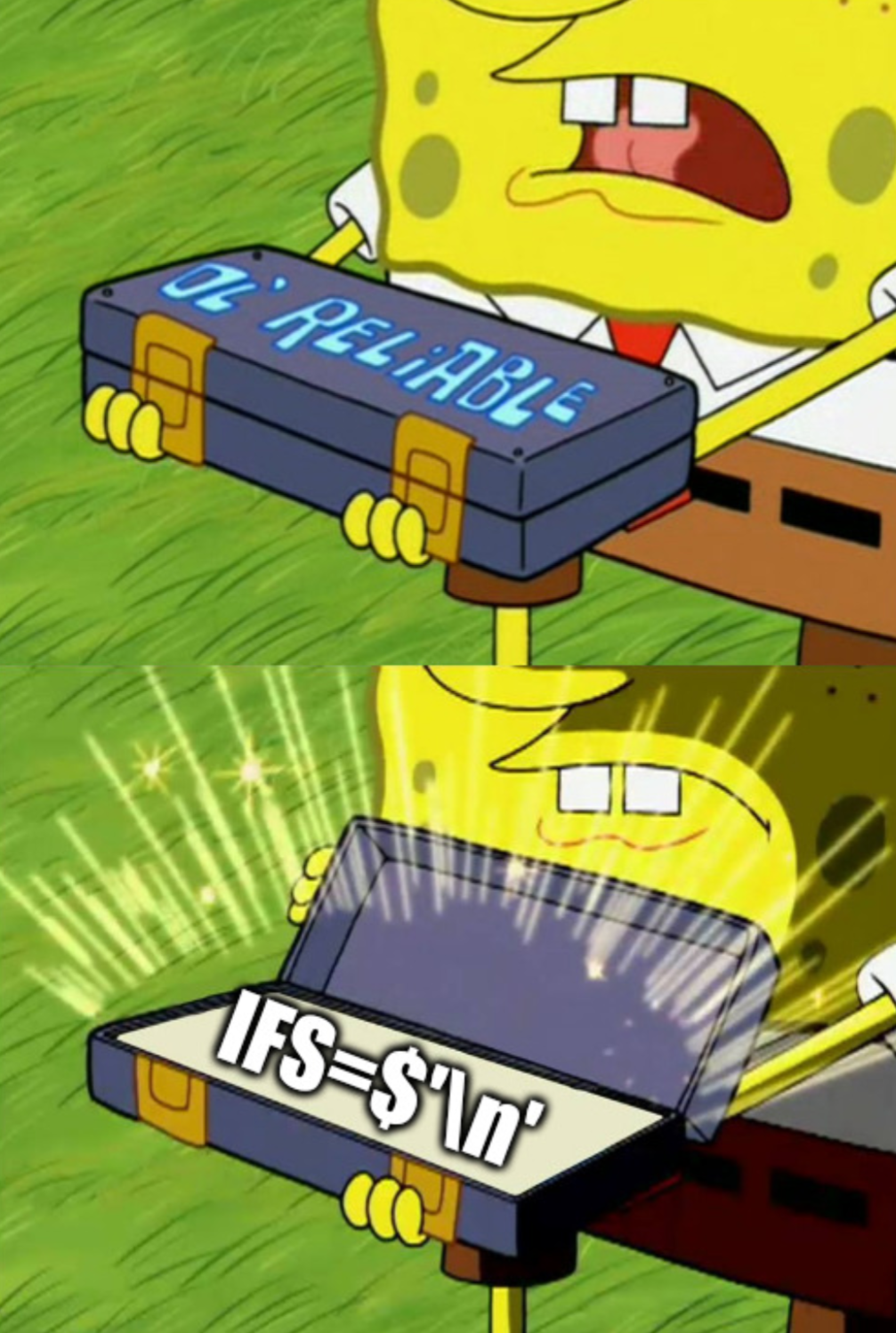Explanation for newbies:
-
Shell is the programming language that you use when you open a terminal on linux or mac os. Well, actually “shell” is a family of languages with many different implementations (bash, dash, ash, zsh, ksh, fish, …)
-
Writing programs in shell (called “shell scripts”) is a harrowing experience because the language is optimized for interactive use at a terminal, not writing extensive applications
-
The two lines in the meme change the shell’s behavior to be slightly less headache-inducing for the programmer:
set -euo pipefailis the short form of the following three commands:set -e: exit on the first command that fails, rather than plowing through ignoring all errorsset -u: treat references to undefined variables as errorsset -o pipefail: If a command piped into another command fails, treat that as an error
export LC_ALL=Ctells other programs to not do weird things depending on locale. For example, it forcesseqto output numbers with a period as the decimal separator, even on systems where coma is the default decimal separator (russian, dutch, etc.).
-
The title text references “posix”, which is a document that standardizes, among other things, what features a shell must have. Posix does not require a shell to implement
pipefail, so if you want your script to run on as many different platforms as possible, then you cannot use that feature.
This joke comes with more documentation than most packages.

~$ man !!
Does this joke have a documentation page?
unironically, yes
I’m fine with my shell scripts not running on a PDP11.
A lot of people call
set -euo pipefailthe “strict mode” for bash programming, as a reference to;in JavaScript.In other words, always add this if you want to stay sane unless you’re a shellcheck user.
My only issue is
-u. How do you print help text if your required parameters are always filled. There’s no way to test for -z if the shell bails on the first line.Edit: though I guess you could initialise your vars with bad defaults, and test for those.




